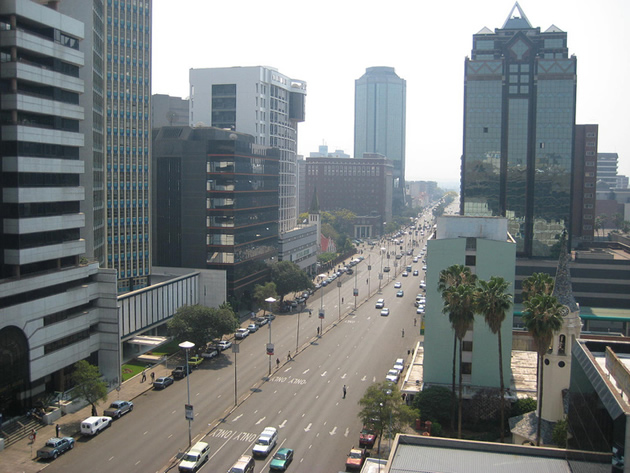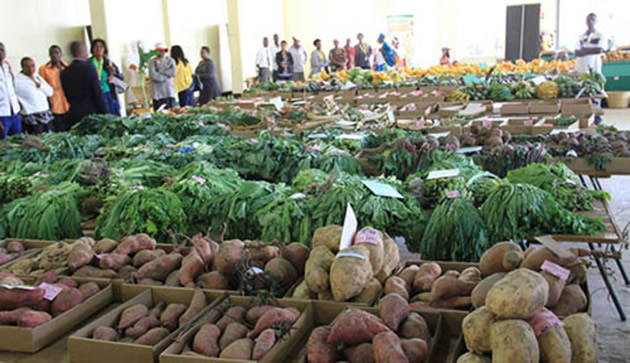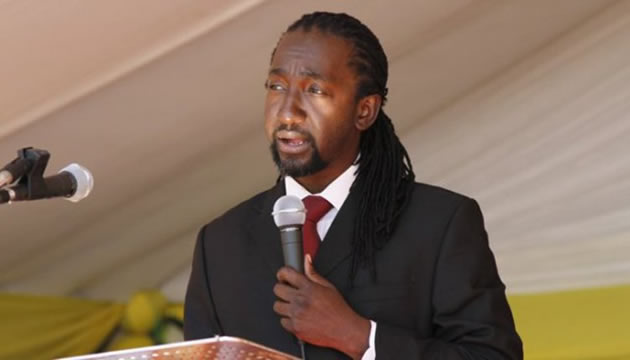How about reclaiming the CBD?


Harare’s central business district has been overrun by foreigners taking over most of the commercial spaces and crowding out locals
Robert Zhuwao Correspondent
“When the whites came to Africa, they had the Bible and we had the land. They told us to close our eyes and pray and when we opened our eyes, they had the land and we had the Bible.”
This is a quotation attributed to Kenya’s founding father, Jomo Kenyatta, commenting on the coming of colonialism.
Interestingly, it rings true when you look at Harare’s central business district in light of the invasive entry of foreigners into commercial spaces, crowding out locals.
Zimbabwe may as well have closed its eyes to the development.
Information from the Zimbabwe Business Tenants Association (ZIBTA) indicates that foreigners now OWN (not lease) 85 percent of Harare’s CBD with most retail shops run by foreigners. Some infrastructure is styled along the “mall” concept with locals overcrowded in places without emergency exit points whilst rentals are paid to foreign landlords.
One site I visited along Cameroon Street had about 300 operators ranging from hairstylists, cellphone sales/repairs, laptops, hair products, etc.
The building is owned by an overseas-based Indian who leased it to a Chinese who then leased out to a Nigerian who is now landlord to 300 small stall operators paying rentals ranging between $120 and $350 per month. The Nigerian makes about $16 000 per month.
Locals have now become spectators in their economy with reserved areas having been overrun by foreigners.
Blame has been passed on line ministries which “gave these foreigners licences/permits” in reserved sectors coupled with lack of confidence on the capacity of indigenous businesses to fill the void. Given indigenous players’ past failures, one can understand that reservation.
Reclamation of the reserved sectors has been dithering on politicians’ desks since 2013.
Locals have a constitutional right to operate in areas reserved for locals.
Sectors such as retail, wholesaling, grain milling, barber shops, tobacco processing, bakeries, and local transport, among others, are areas reserved for locals.
Bold moves to remove political cowardice and spineless bureaucracy hindering implementation of these rights need to be addressed otherwise we risk reducing Zimbabwe’s graduates into vendors.
It is also critical to note that infrastructure in the CBD continues to deteriorate, there is also need to physically reclaim it following huge pressures exerted on infrastructure by various factors.
It is in this vein that a critical component of Zimbabwe — the Diaspora — should come in.
With huge numbers of Zimbabweans residing and working abroad, the Diaspora is critical in the rebuilding of Zimbabwe’s infrastructure.
Harare is an overcrowded city that is imploding. The traffic jams caused by kombis and mushikashikas are distressing.
Relocating them to the areas where vendors have been relocated will offer relief to the city’s road infrastructure.
Traffic volumes will thus be created for the relocated vendors whilst the city centre is de-congested.
Joint ventures between business and council can be explored leading to the development of the old ranks into underground parking or ranks (if need be) whilst building up to include shopping malls and offices.
Old tired single story infrastructure around the Kopje area needs replacement paving for a new skyline for Harare.
Legislation promoting value addition to our CBD real estate needs enactment and better space management exercised.
Participation of private sector and Diaspora investment is paramount in the infrastructure rebuilding of our country.
Value addition for Harare’s CBD needs to be implemented.
In 2015, the Diaspora contributed in excess of $1 billion in remittances back home.
Diasporans have varied views about the Zimbabwe situation, but they love their country.
In the same vein, they feel like they have nothing to come home to.
They are people frustrated at their inability to participate in the rebuilding of their country because they feel ostracised.
My engagements with Diasporans show that packing their bags and heading home is easier said than done.
Factors such as:
their children’s welfare
health insurance
culture shock for kids that have grown abroad
electricity cuts
water availability
cost of living;
and what to do once back home comes into consideration.
Policies encouraging the need to invest in projects that can earn them revenue in dividends to subsidise their families in Zimbabwe need to be crafted.
This relieves dependency on their wage/salary abroad.
Under the right conditions; these are Zimbabweans willing to invest in the rebuilding of Harare’s skyline and Zimbabwe’s infrastructure.
These are people not requiring politicking; but straight business talk.
Antiquated laws surrounding property ownership in Zimbabwe need realignment such that land remains in the hands of locals.
With a CBD overrun by foreigners, locals have to buy back the properties right now, when the property market is low.
Government needs to consider the idea of creating a property bank for reclamation of these properties.
This avenue can serve as a good investment opportunity for people in the Diaspora.
In the long run this will serve the country better as receipts from the accruing rentals will benefit the local economy and enable investors from the Diaspora to have inland income to subsidise the families they are helping back home.
- Robert Zhuwao is a businessman and the Acting National President of the National Business Council of Zimbabwe (NBCZ).








Comments